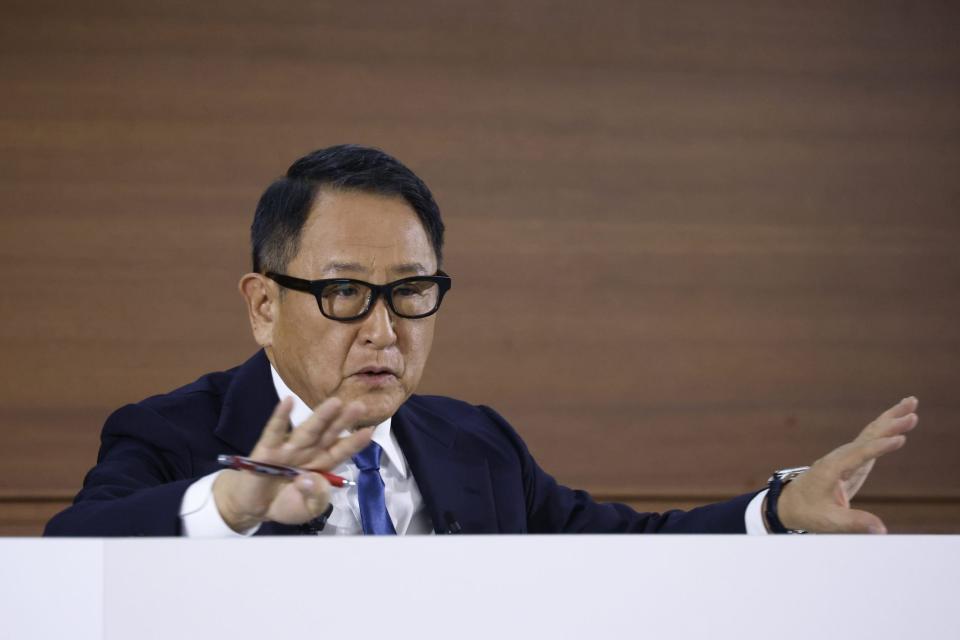Toyota sits on top of the world’s car market for the fourth year running, but an array of safety scandals could threaten its brand

Toyota Motor continues to dominate the global car market. The Japanese automaker confirmed Tuesday that it is the world's top automaker for the fourth year in a row. Yet that celebration is tempered by an array of safety issues that threaten Toyota's reputation for quality.
On Tuesday, Toyota reported that it and its subsidiaries Daihatsu Motor and Hino Motor sold 11.2 million cars in 2023, a 7.2% increase from the year before. Toyota's closest competitor, the Volkswagen Group, delivered 9.24 million vehicles last year, a 12% jump.
The company attributed its performance to strong demand in North America and Europe, as well as the easing of a semiconductor shortage that dates back to the COVID pandemic. Toyota sales in North America were up 7% year-on-year and up 9.1% year-on-year in Europe.
Toyota's hybrid sales were also strong in 2023, despite early arguments that the carmaker was ignoring the shift to battery electric vehicles. The company sold around 3.4 million hybrid vehicles last year, up 31.4% from 2022. Toyota chairman Akio Toyoda is a skeptic of battery electric vehicles, instead supporting hybrids: Last week, Toyoda suggested that battery EV adoption will peak at just 30%.
Scandals and recalls
But Toyoda took a conciliatory tone on Tuesday by apologizing for safety issues that threaten to hurt the company's brand.
"I would like to express my deepest apologies to our customers and stakeholders for the inconvenience and concern caused by the successive irregularities at Hino Motors, Daihatsu and Toyota Industries," Toyoda said at a Toyota event, according to Reuters.
Toyota halted shipments from Daihatsu in late December after an independent third-party investigation uncovered 174 safety irregularities in 64 models. Toyota has promised to announce plans for Daihatsu by mid-February, which could include measures like a change in leadership and dispatching Toyota engineers to monitor the subsidiary's operations.
On Monday, Toyota had to temporarily suspend shipments of 10 models due to certification problems with diesel engines. An investigation reported that Toyota used different software in the certification process than what it used in mass production; the software used in testing led to less variation in horsepower output.
Toyota is also still grappling with the fallout from the decades-old Takata air bag scandal. On Monday, Toyota issued a "Do Not Drive" advisory for the owners of 50,000 vehicles in the U.S., specifically, the 2003-2004 Corolla, 2003-2004 Corolla Matrix, and the 2004-2005 RAV4 models.
Over 30 deaths and hundreds of injuries around the world since 2009 are linked to Takata air bags, which could unleash metal shrapnel inside vehicles when activated. Faulty inflators have caused over 100 million vehicles to be recalled worldwide.
This story was originally featured on Fortune.com

 Yahoo Finance
Yahoo Finance 